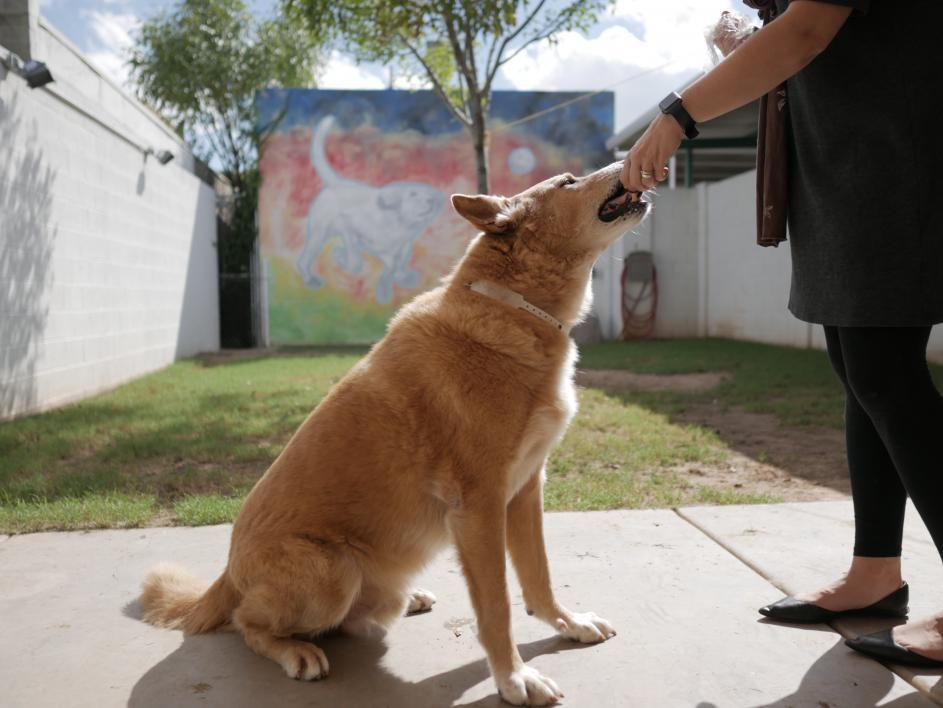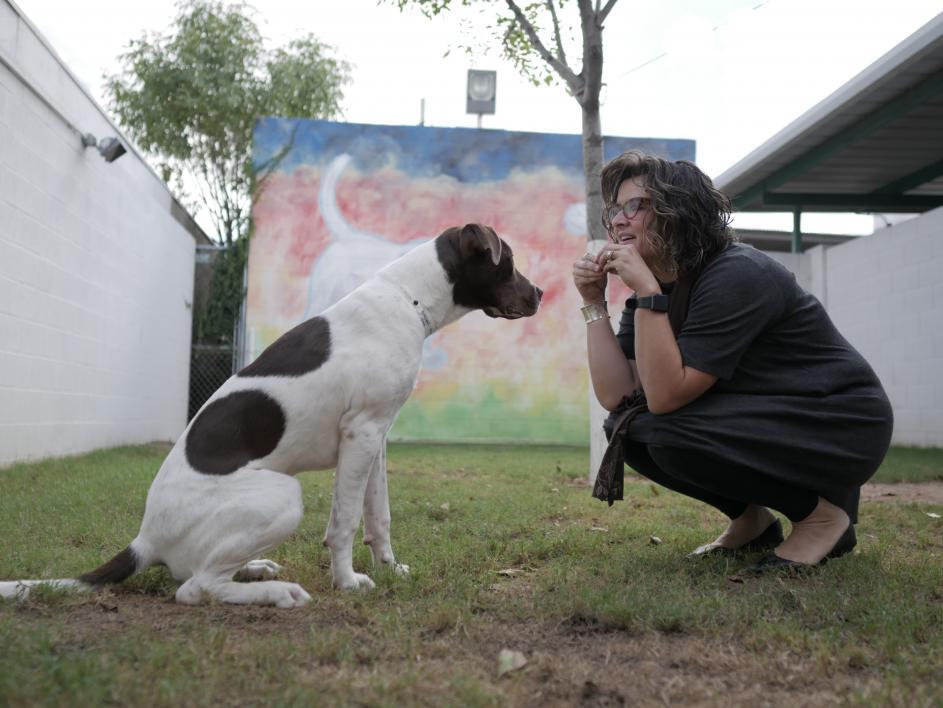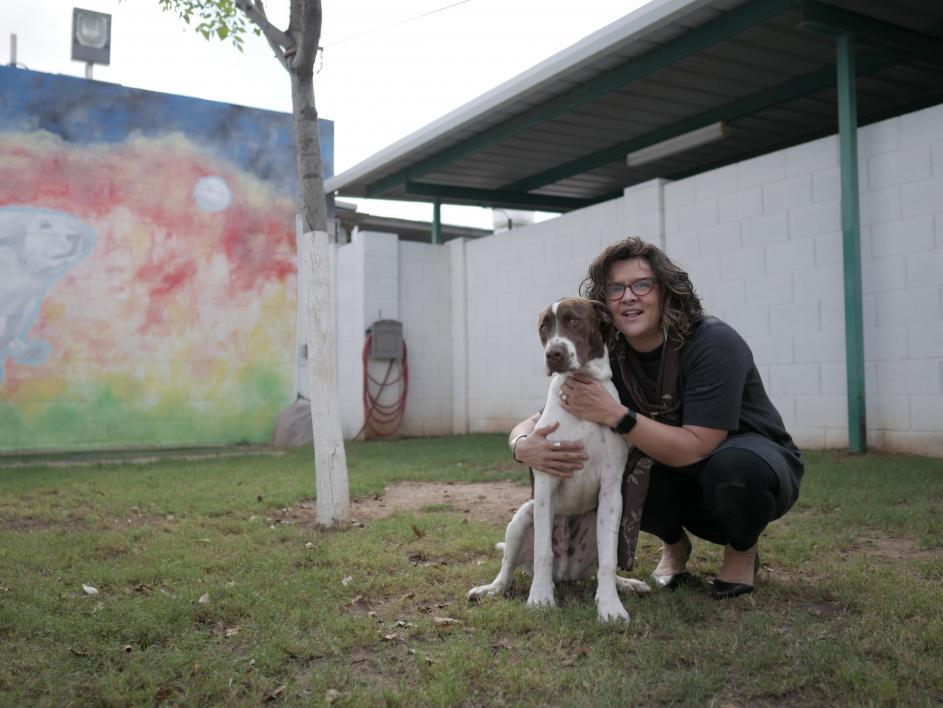ASU canine researchers awarded grant to study impact of foster care on shelter dogs and volunteers

ASU’s Lisa Gunter (pictured), Maddie’s Research Fellow, and Clive Wynne, professor of psychology — together with co-investigator Erica Feuerbacher, who is an assistant professor of animal and poultry sciences at Virginia Tech — were recently awarded $1.7 million from Maddie’s Fund.
Each year, over 4 million dogs enter animal shelters in the United States. Less than 20 percent of these dogs are reclaimed by their owners, which leaves millions of shelter dogs in search of a forever home. This is where Arizona State University’s Canine Science Collaboratory believes science can make a difference.
Scientists in the Canine Science Collaboratory study factors that impact shelter-dog adoption, such as the effect and accuracy of breed labels. With a new grant from Maddie’s Fund, a national family foundation established by Dave and Cheryl Duffield to revolutionize the status and well-being of companion animals, the Canine Science Collaboratory will study how foster care affects dogs in shelters as well as their staff and volunteers. The study will include sheltering organizations from across the United States.
ASU’s Lisa Gunter, Maddie’s Research Fellow, and Clive Wynne, professor of psychology, together with co-investigator Erica Feuerbacher — an assistant professor of animal and poultry sciences at Virginia Tech — were recently awarded $1.7 million from Maddie’s Fund. This large-scale fostering study builds on previous research, also funded by Maddie’s Fund, that found just one night away from a shelter decreased dogs' stress levels.
“Like all our work, the goal of this study is to improve the lives of shelter dogs by helping them find loving homes. This study uses two-legged and four-legged evaluations to understand the impact of different types of fostering on shelter dogs and the volunteers who care for them,” Wynne said.
This new study will enroll 100 shelters across the United States and look at three types of fostering: field trips, sleepovers and longer-term fostering. To participate in the study, shelters need to have a physical shelter that houses dogs and a willingness to implement a new foster program.
Sign up: The study is looking for shelters that are interested in participating
Shelters that join the study will receive foster program training and implementation support from Maddie’s Fund. The researchers from ASU and Virginia Tech will collect data about the impact of fostering on outcomes like adoption and length of stay and how these programs affect staff and volunteers who work in the shelters.
“It’s exciting to have the opportunity to learn more about how fostering. Intuitively, it seems like leaving the shelter would benefit dogs, but we actually don’t know as much as we think,” said Gunter.
The previous studies from the Canine Science Collaboratory have focused on improving shelter dog welfare and also on identifying the effects of shelter breed misidentification.
About Maddie's Fund
Maddie’s Fund is a family foundation created in 1994 by Workday co-founder Dave Duffield and his wife, Cheryl, who endowed the foundation with more than $300 million. Since then, the foundation has awarded more than $208.9 million in grants toward increased community lifesaving, shelter medicine education and pet adoptions and foster care across the U.S. The Duffields named Maddie’s Fund after their miniature schnauzer, Maddie, who made them laugh and gave them great joy. Maddie was with Dave and Cheryl for 10 years and continues to inspire them today. Maddie’s Fund is the fulfillment of a promise to an inspirational dog, investing its resources to create a no-kill nation where every dog and cat is guaranteed a healthy home or habitat.
More Science and technology

4 ASU researchers named senior members of the National Academy of Inventors
The National Academy of Inventors recently named four Arizona State University researchers as senior members to the prestigious…

Transforming Arizona’s highways for a smoother drive
Imagine you’re driving down a smooth stretch of road. Your tires have firm traction. There are no potholes you need to swerve to…

The Sun Devil who revolutionized kitty litter
If you have a cat, there’s a good chance you’re benefiting from the work of an Arizona State University alumna. In honor of…




